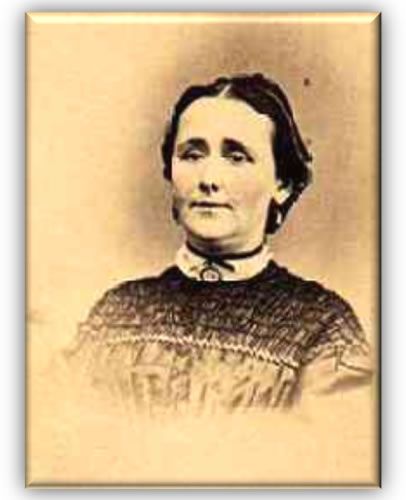
Kate Barry was a remarkable woman who played a significant role in the Revolutionary War.
Born in 1756, she grew up in a Quaker family in Philadelphia and was educated at the Academy for Young Ladies.
At the age of 17, she married Francis Barry, a prominent American solicitor, and moved to London with him.
There, she became involved in the American Revolutionary cause, eventually earning the nickname “The Spy Mistress of America.”
Kate Barry’s Background and Early Life
Kate Barry’s upbringing and early years were characterized by a profound commitment to American independence.
Influenced significantly by her father, a prominent figure in the Pennsylvania Assembly and a staunch advocate for American freedom, Kate developed a strong sense of patriotism.
This familial influence motivated her active involvement in the revolutionary cause, even in the face of opposition from her husband, who aligned with the loyalist perspective.
Kate Barry’s background and early life illuminate her unwavering dedication to the principles of independence during a pivotal period in American history.
- Read also: John Hancock: A Revolutionary Figure in the American War
- Read also: A Quiet Revolutionary: John Jay in Revolutionary War
Challenge the Stereotypical Image
Kate Barry’s narrative defies the stereotypical portrayal of women during the Revolutionary War as passive and powerless.
Contrary to this prevailing image, she exhibited extraordinary courage, determination, and resourcefulness in her unwavering support for the American cause.
Kate fearlessly challenged societal norms and even went against her husband’s wishes, showcasing a resilience that goes beyond traditional expectations.
Her story serves as a powerful testament to the fact that women, during this crucial period, were not confined to conventional roles but actively contributed with remarkable strength and independence.
What was Kate Barry’s Role in the Revolutionary War?
Kate Barry’s role in the Revolutionary War was multifaceted, and she made significant contributions to the cause of American independence. Some of her key roles included:
Intelligence gathering
Leveraging her social connections and insights into the British establishment, Kate played a crucial role in gathering intelligence.
Her ability to access information about British plans and movements became instrumental for American leaders.
This intelligence allowed them to make informed decisions and strategically plan their counteractions.
Espionage
Kate Barry’s proficiency in intelligence gathering naturally led her into the realm of espionage.
As a covert operative, she undertook the responsibility of acquiring essential enemy secrets.
Her role was pivotal in supplying American leaders, including General George Washington, with critical information that proved vital in shaping military strategies.
Codebreaking
Kate Barry’s skills extended to codebreaking, a valuable asset in intercepting and deciphering British messages.
Through her expertise, she provided American leaders with insights into encrypted communications, unraveling the intentions and plans of the British forces.
This clandestine work significantly enhanced the strategic advantage of the American forces.
Diplomacy and communication
Kate Barry’s influence extended beyond the realm of intelligence operations.
Her diplomatic finesse and effective communication skills positioned her as a key liaison between diverse Patriot factions.
Acting as a trusted intermediary, she played a vital role in resolving disputes and maintaining unity among the American forces, fostering a collaborative environment during a critical juncture in the war.
The Battle of Cowpens
The Battle of Cowpens, which took place on January 17, 1781, was a pivotal engagement in the Southern campaign of the American Revolutionary War.
Kate Barry, also known as Catherine Moore Barry, played a crucial role in this battle, contributing to the American victory in several significant ways.
Kate Barry’s most renowned contribution to the Battle of Cowpens was her daring ride to warn American Brigadier General Daniel Morgan of the approaching British forces.
Her timely warning allowed the American forces to prepare for the battle, ultimately leading to a decisive victory.
Her actions were instrumental in the American success at Cowpens, which proved to be a turning point in the reconquest of South Carolina from the British.
In addition to her warning ride, Kate Barry also played a vital role in rounding up Patriot militia to fight the British at Cowpens.
Her efforts in gathering enough Patriots to confront the British forces were essential to the American victory.
Furthermore, she aided General Morgan in setting a trap to ambush the British, contributing to the overall success of the American forces.
Kate Barry’s intelligence, bravery, and resourcefulness directly contributed to the American victory at the Battle of Cowpens, which was a significant turning point in the Southern campaign of the Revolutionary War.
Her actions not only helped the American forces fend off the British but also set the stage for the eventual defeat of the British governor, Cornwallis, and his men, driving them north out of the state of South Carolina.
Legacy and Recognition
Kate Barry’s impact during the Revolutionary War has etched a lasting legacy, earning her recognition as a national heroine.
Her contributions have not gone unnoticed, with prestigious awards and honors commemorating her remarkable service.
Among these accolades are the Sons of the American Revolution Medal and the Colonial Dames of America Medal.
In celebrating her achievements, Kate Barry stands as an enduring source of inspiration for women.
Her story serves as a poignant reminder of the pivotal role women played in the struggle for American independence.
Through her dedication and courage, she has rightfully earned her place in history, leaving an indelible mark that continues to resonate with gratitude and admiration.
- Read also: A Native Leader’s Role: Joseph Brant in the Revolutionary War
- Read also: Understanding the Effects of the Revolutionary War
Conclusion
Kate Barry’s endeavors in the Revolutionary War exemplify the potency of determination, courage, and resourcefulness.
Her narrative prompts a reconsideration of the conventional portrayal of women’s roles during this period, urging recognition of the substantial contributions made by women like her.
Drawing inspiration from her example can foster increased adaptability and resilience in our own lives.
Armed with the lessons gleaned from her experiences, we are better equipped to confront challenges and make a positive impact on the world around us.
FAQs
Kate Barry used her social connections and her knowledge of high-level British officials to gather crucial information about British plans and movements. She also engaged in espionage, obtaining vital enemy secrets and sharing them with American leaders.
Kate Barry’s codebreaking skills were instrumental in the American effort to intercept and decipher British messages. By deciphering these messages, she was able to provide American leaders with valuable insights into British plans and intentions.
Kate Barry’s diplomatic skills and communication abilities were crucial in her role as a liaison between diverse Patriot factions. She was able to act as a trusted intermediary, helping to resolve disputes and maintain unity among the American forces.
Kate Barry has been recognized as a national heroine and honored with various awards and honors, including the Sons of the American Revolution Medal and the Colonial Dames of America Medal.


